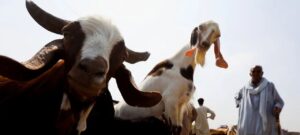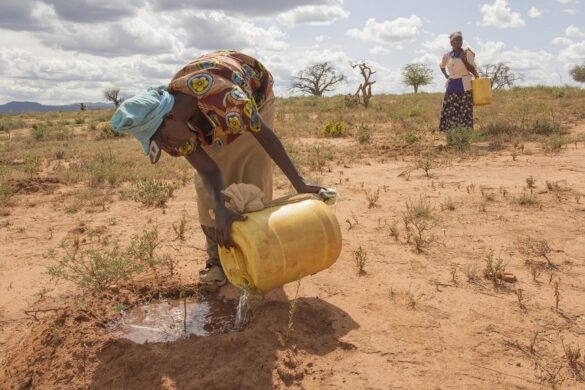
No sacrificial animal for Eid al-Adha
For many Muslims, slaughtering a sheep and sharing the meat with family and the needy is an integral part of Eid al-Adha. However, due to increasing prices, more and more people in Egypt can no longer afford to buy animals for the ritual.
Religious significance of animal sacrifice
According to Mostafa Aid Kamel, a preacher at the Hadaik-Il-Soleimania Mosque in western Cairo, those who can afford it should sacrifice a sheep, a cow, or a camel. Kamel has a degree in Islamic law from the famous Al-Azhar University and knows about the religious significance of the ritual.
“The person who slaughters the animal should divide it into three parts. One for themselves, one for their family, and one for the poor and needy, and each part should be of equal size,” he explained.
Kamel himself will not be sacrificing an animal this year due to his own financial situation. The father of two comes from the Fayoum province, about 100 km southwest of Cairo.
Rising prices and economic hardship
Ashraf Mostafa, a 60-year-old retiree from Cairo, will also be unable to buy an animal for the ritual this year. Mostafa believes that rising prices are to blame as his income has remained the same or even decreased since he retired from his job in the advertising department of a large state-owned newspaper.
Like Mostafa and Kamel, many Egyptians are unable to afford the traditional ritual due to the country’s economic crisis. The Egyptian pound has lost nearly half its value in the past year, and prices are rising every week.
According to Ammar Ali Hassan, an Egyptian political scientist interviewed by the ARD-Studio in Cairo, the distribution of resources in Egypt is unfair. He argues that a lot of money is spent on infrastructure projects simply to show off, but this money is not invested in productive projects to address the economic crisis.
Unable to afford the ritual
Ahmed Hosni Ibrahim, a butcher in Cairo, says that meat prices are increasing day by day. He recalls that he used to spend 50,000 pounds (approximately 1,400 euros) on meat to offer to family and the needy. However, that amount is no longer sufficient to buy even an ox for slaughter.
As a result, many Egyptians are unable to afford the traditional ritual and limit themselves to what they can still afford. For example, Wafaa Bazina, a woman in her late 50s who belongs to the middle class, says that she can no longer afford meat for her family due to its high price. This year, she will celebrate Eid al-adha in a modest way with only a small amount of meat for one or two days.
Middle-Class Woman Reduces Meat Consumption Due to High Prices
A woman in her late 50s who belongs to the middle class has cut down on her meat consumption as it has become increasingly expensive. She reveals that her family will only have a small portion of meat for a day or two during the upcoming Eid al-Adha celebration, also known as the Festival of Sacrifice. The woman states that they cannot afford to purchase any more meat due to its high cost.


